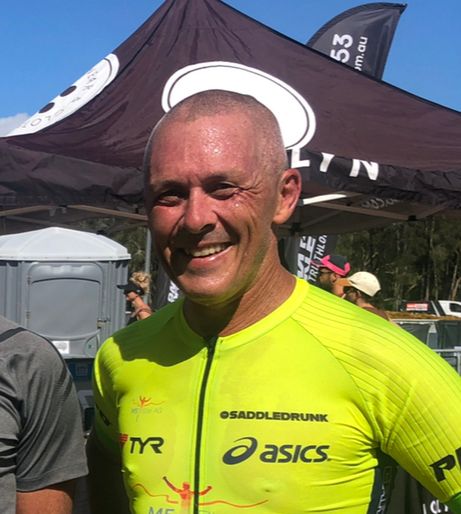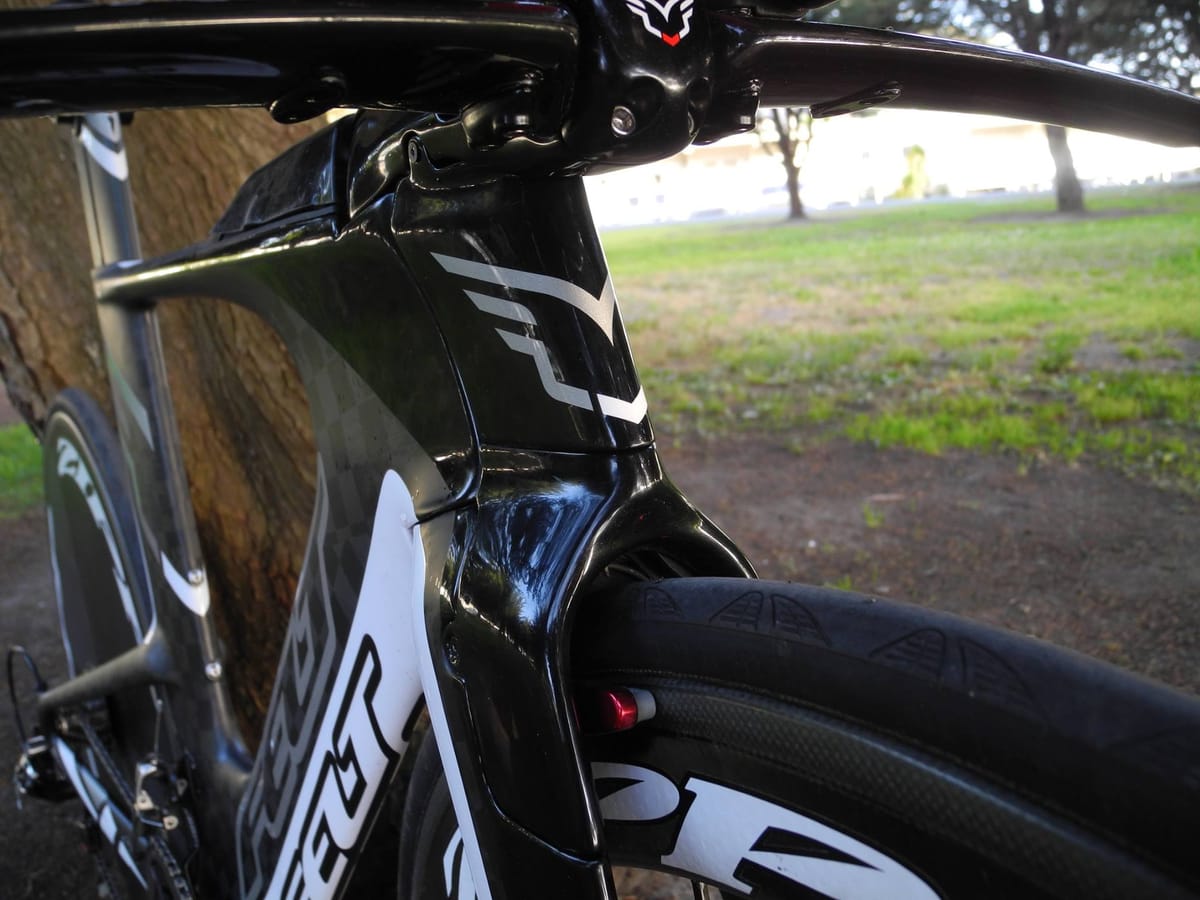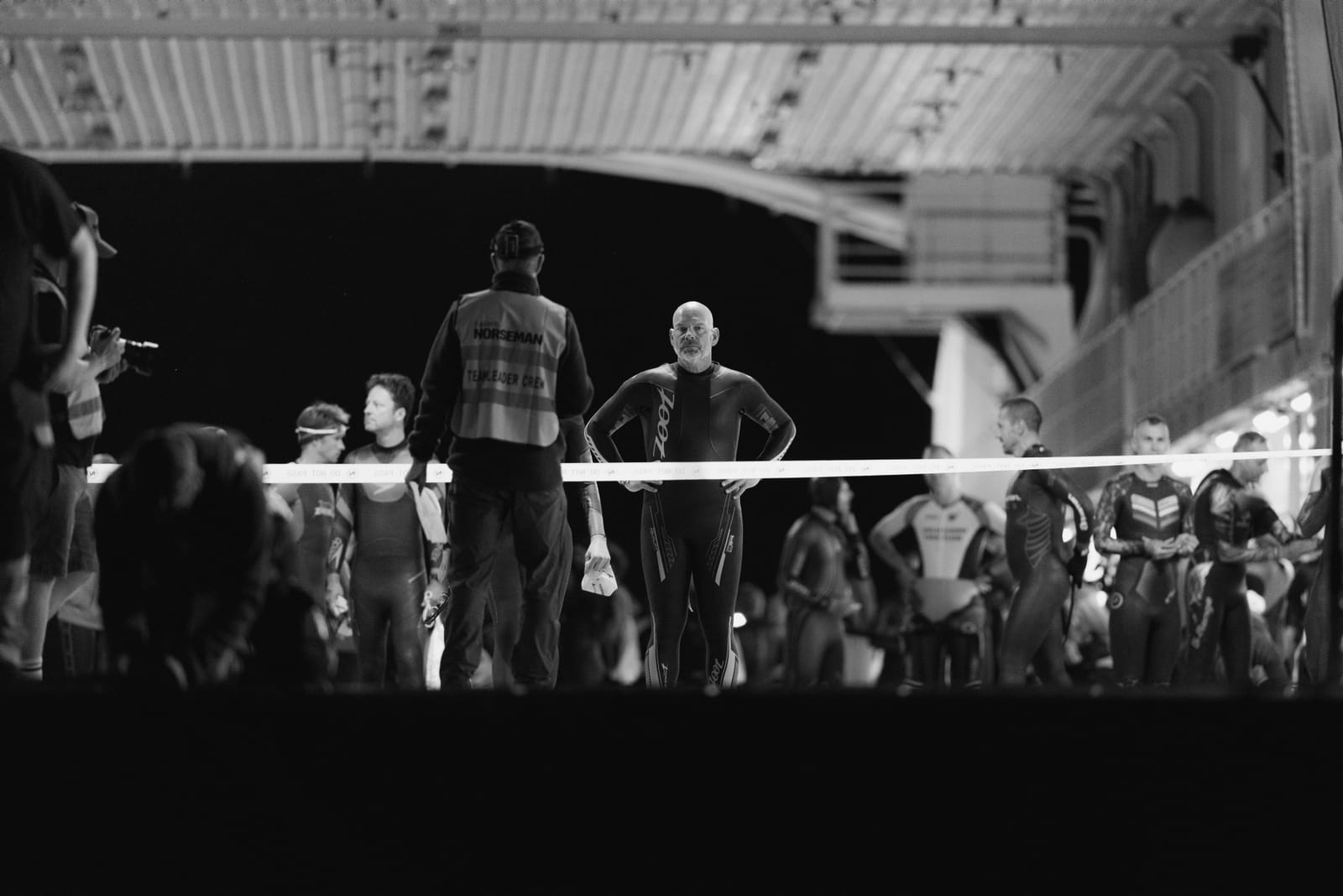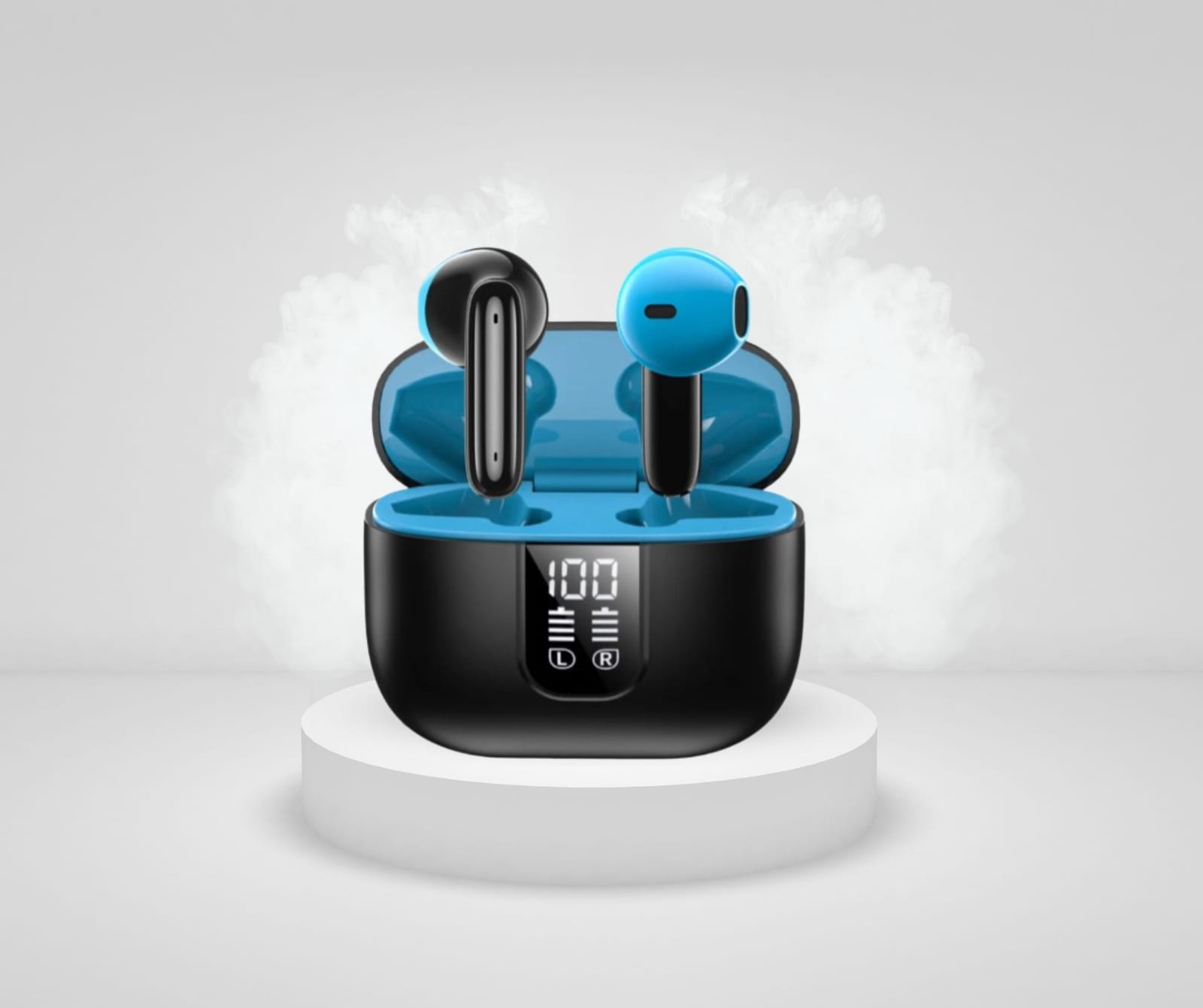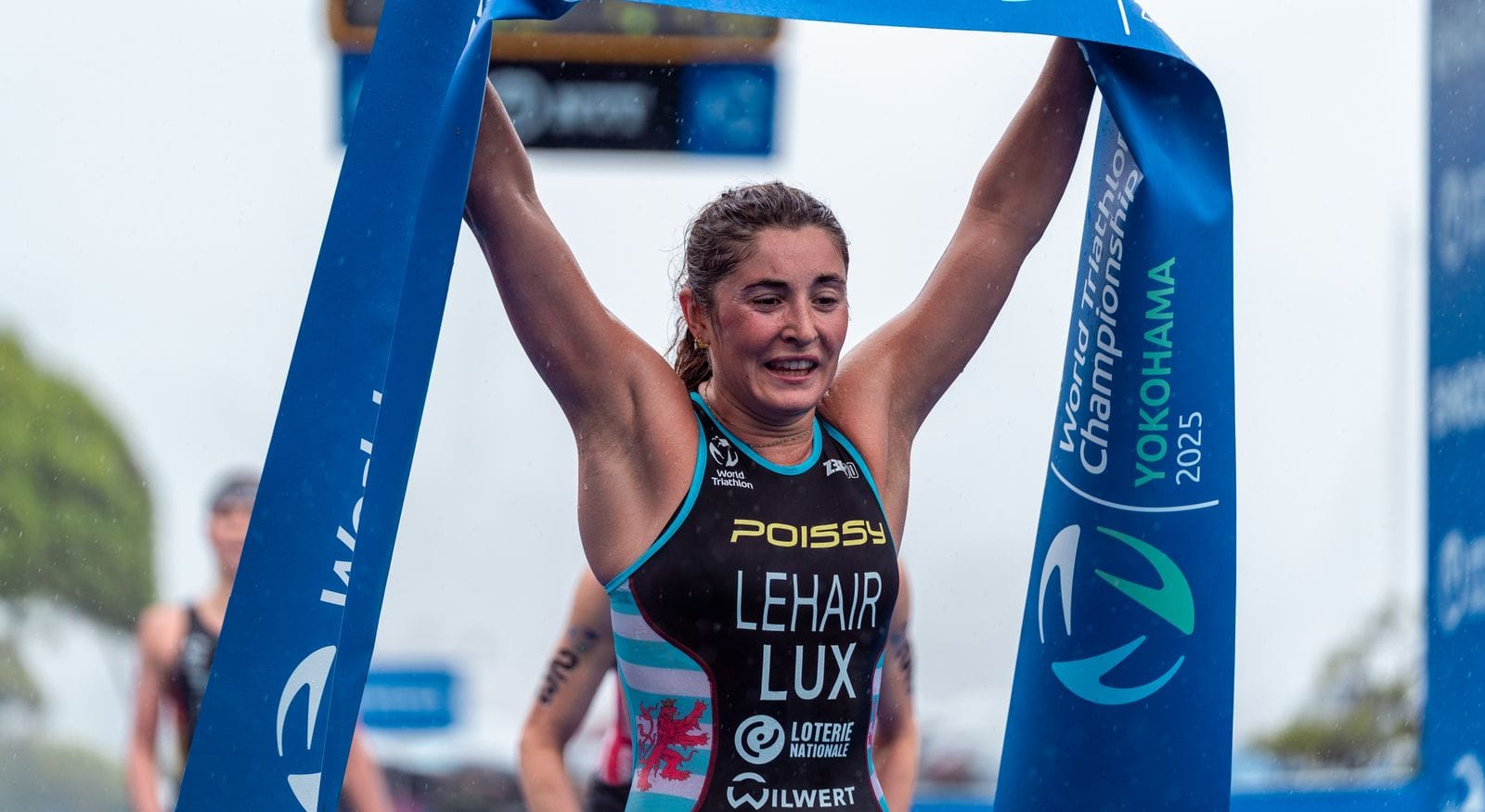We spoke to Tim Berkel and coach Grant Giles in the weeks leading up to Ironman Cairns to get an understanding of his training in the lead up to a goal Ironman event. Berkel wanted to win Cairns but as we know he did not get to stand on top of the podium this year. He did race incredibly well and once again took second overall falling just short of the legend Cameron Brown. Berkel added to his impressive list of big results in big races. He is one of our top Ironman professional triathletes.
After Ironman Cairns we spoke with coach Grant Giles to get a more in-depth look at his race.
As always Gilesy provides some great insights into his athlete’s races and we once again are not disappointed. Grant was himself a fairly talented triathlete and he has morphed into one of the leading coaches in the sport.
On to the dissection of Tim’s 2014 Ironman Cairns race…
The 2014 Ironman Cairns threw up some tough conditions for everyone. Do these conditions play any type of role into the performance of an athlete like Tim Berkel?
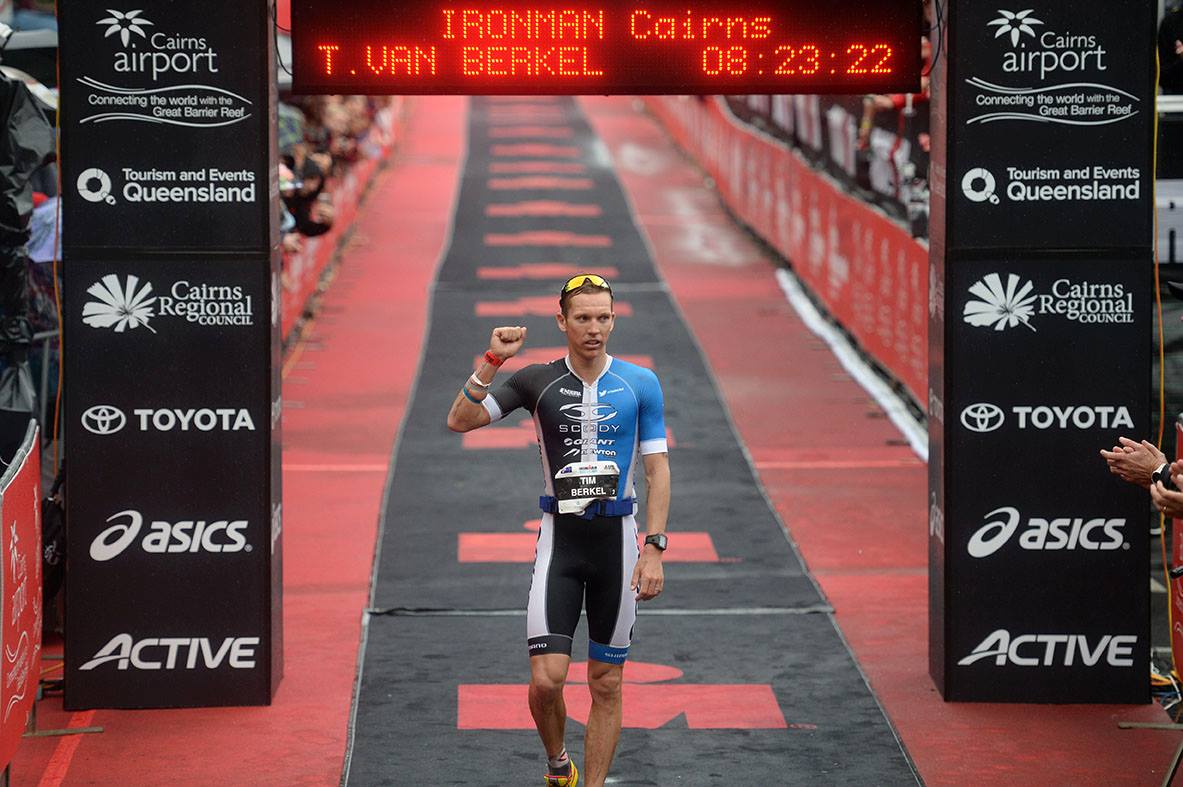
Coach Grant Giles: No. If it did I’d be disappointed. These guys do enough work in all conditions to cover just about anything Huey can throw up. Sometimes it’s just cold steel and certainly Cairns was. Having said that, those conditions are going to suit some athletes more than others and you can only play the cards you are dealt on the day. It’s one of the things that you just have to put out of your mind in the moment.
Tim was super lean coming into the race, so rain wasn’t on the wish list but reality never serves up the ideal. So once again you can only do the best with what you have in the moment. One of our catch cries is – maximise what you have to work with in the moment. Lastly, judgment plays a big role here, we try to get them not to judge conditions as good or bad, they are just what they are.
Trizone: Tactically, does anything change?
Grant Giles: Being more focused on corners and riding technically correct for the conditions is the only real factor. But tactically I don’t think it changed the face of the race for Tim. From my point of view I was a little concerned about how lean he was for the conditions.
maximise what you have to work with in the moment
Trizone: He looked fairly good coming out of the water a few minutes behind the lead guys. Has his swimming improved?
Grant Giles: It has but again Tim came off the mountain super lean. This can and does hamper swim speed at times as athletes tend to sit a little lower in the water when they are that lean. Again, altitude tends to make it harder to swim at high intensity so he may have lost some top end in that final 4 weeks in the pool.
Trizone: On the bike Tim was putting in some turns during the later half. Physically and tactically do you think this was a good move?
Grant Giles: It does become a bit of a mind game from 120km’s onwards. This is the period where I think it’s good to show strength as this is the period where people start to weaken and often this is the period where people will get dropped if they are fatigued. This is where I encourage our guys to try to feel strong, If people get dropped in that last 60km’s then good, if they don’t at least it makes it harder for them to run well. 120km’s is crunch time.
Trizone: We saw that the race came down to the battle of the body and mind around the 19-21km mark of the run. What things could Tim take out of this? Are there any adjustments you’ll be speaking to him about?
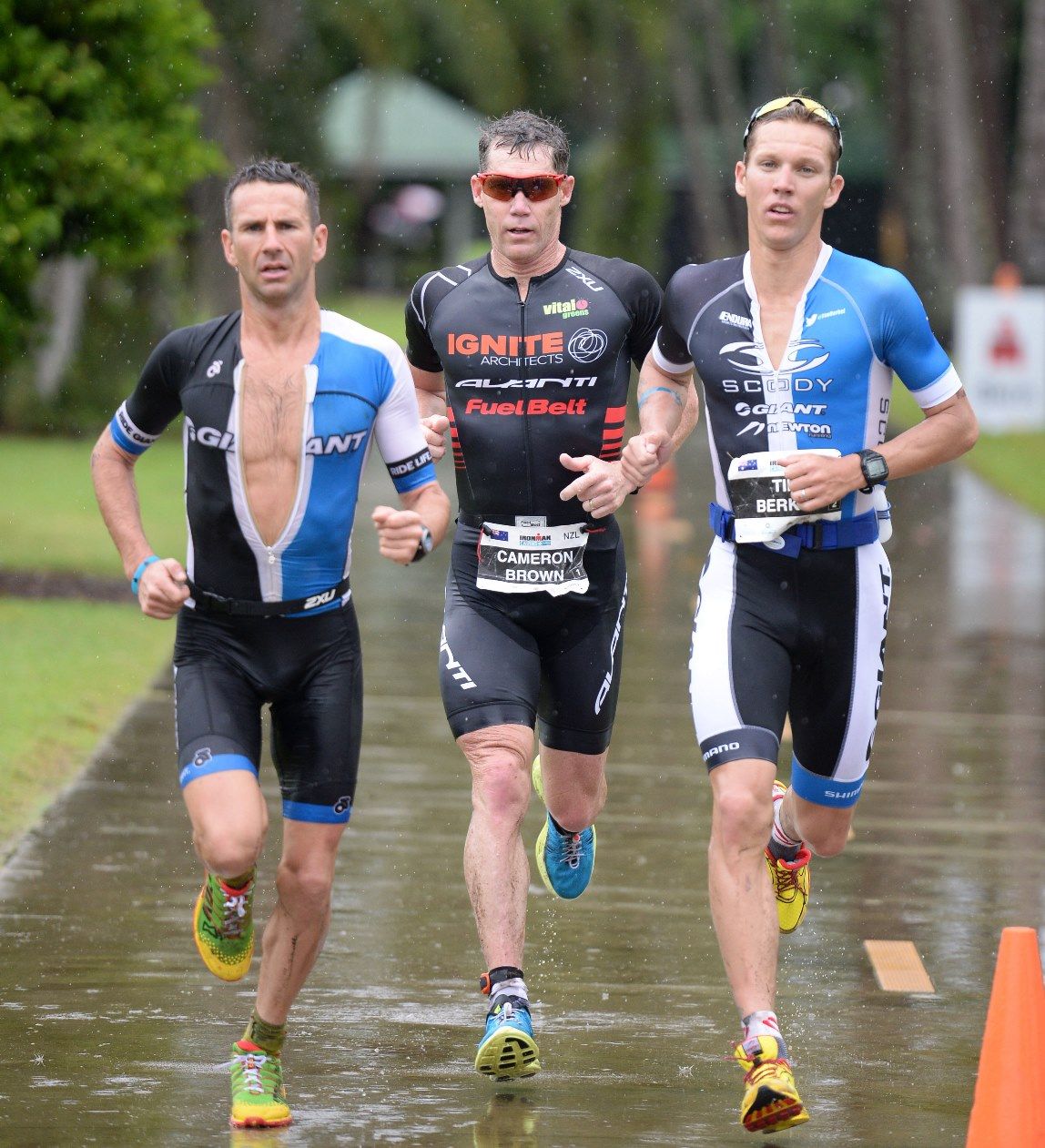
Grant Giles: It was interesting to watch Cam sit back at the start and let Tim and Robbo set the pace. Although you could argue it was too fast too soon I always think it’s good to race. The lessons of this experience are invaluable and I’m really happy it was Cam who served it up because his experience under that pressure was evident and I’m sure Cam got that experience from exposure. Race hardness comes from exposure and it’s that exposure that creates cool heads so in that sense you can’t beat it. Yes, there are some adjustments certainly. I wouldn’t like to expose all those here, but for example, little things like not showing your pain is part of it. Again, that comes down to experience but having the poker face in an Ironman especially is a skill well worth cultivating.
I think it’s far harder to break someone if you can’t see their pain. Berks threw the kitchen sink at Cam over that first 15km’s, 9 times out of 10 that’s going to work, on this day a guy showed up with vast experience and he was really feeling it. Cam was super patient and it may have been Tim would have been better served to sit the shoulder at the start and assess but that’s a risk too. Tim thought he was younger and had the upper hand speed wise early based on his training and tactically I think Tim played a good card, Cam was just holding better cards on the day. (View Tim’s race run data on Strava)
Age Grouper Take Away…
Trizone: For an age grouper, what can they learn from Tim’s race?
Grant Giles: I think for an age grouper the lesson from Tim’s race is in the fact that yes you can race an Ironman. The main lesson is that well trained you can blow to an extent and not erode. What I mean by that is, Tim was pretty shot over that back 15km’s and still ran a 2:48 (Tim’s run data). Age groupers at times think that once they go into a slump that’s where they are going to stay and it’s not the case. A strong willed athlete will always find a way through that slump, in fact, in my opinion, that is the critical component of Ironman racing. It’s how you manage your down periods that makes the difference to not bleeding out too much time. Small things such as using Que words to stay in the moment and focused can make all the difference. Breaking it down into small pieces or mini races during the marathon can mentally alleviate the pressure of holding speed and form. Visualising good form while in bad patches can also really help. These are things we always talk about.
Trizone: What did Tim’s post-race recovery look like?
Grant Giles: A week off- walking often, then 2 weeks aerobic going by feel, good recovery diet i.e proteins, fats, greens. Then back into the thick of a block of underpinning work for his coming Kona prep.
Trizone: He’s heading back to the US soon, what specific plans do you have for him?
Grant Giles: Boulder is where he is going to do a solid block of underpinning strength work for his Kona prep. We will build a race into that probably Lake Stevens 70.3 and then he will come back to Lennox in Sept where we will finish this thing off with a quality section, Motor pacing, quality running and upped swim volume into the race itself.
| Name | Country | Swim | Bike | Run | Finish | Cat | Overall |
| BROWN, Cameron | New Zealand | 00:55:16 | 04:36:20 | 02:44:54 | 08:20:15 | 1 | 1 |
| VAN BERKEL, Tim | Australia | 00:52:11 | 04:39:35 | 02:48:15 | 08:23:23 | 2 | 2 |
| ROBERTSON, Peter | Australia | 00:50:34 | 04:41:13 | 02:58:08 | 08:33:26 | 3 | 3 |
| BURTON, Matt | Australia | 00:55:18 | 04:36:13 | 02:59:41 | 08:35:19 | 4 | 4 |
| HAST, Jarmo | Finland | 00:53:15 | 04:43:07 | 03:00:58 | 08:41:24 | 5 | 5 |
| OGDEN, Courtney | Australia | 00:52:14 | 04:39:59 | 03:11:22 | 08:47:48 | 6 | 6 |
| MARTIN, Luke | Australia | 00:55:23 | 04:50:32 | 03:01:18 | 08:50:58 | 7 | 7 |
| MURPHY, Samuel | Australia | 00:56:42 | 04:55:34 | 03:01:06 | 08:56:43 | 1 | 8 |
| READ, Carl | New Zealand | 00:55:20 | 04:58:39 | 02:59:18 | 08:57:29 | 8 | 9 |


